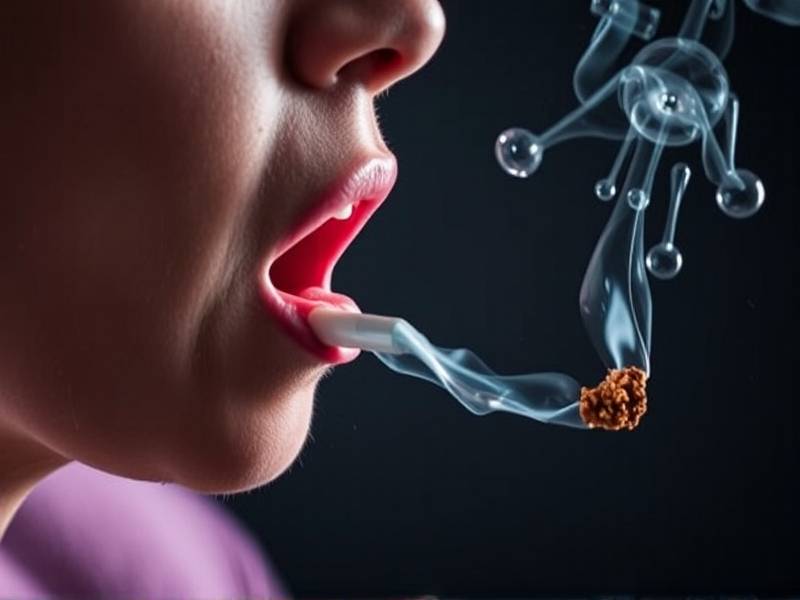Why Does My Mouth Taste Bad After Quitting Smoking? The Science Behind the Smell and Solutions
Introduction
Quitting smoking is a significant step towards improving one's health. However, many individuals who have quit smoking may experience an unpleasant taste in their mouth. This article delves into the science behind this phenomenon and provides practical solutions to alleviate this issue.
The Science Behind the Bad Taste
1. Tar and Nicotine Build-Up
When you smoke, tar and nicotine accumulate on your teeth, tongue, and gums. These substances can lead to a foul taste in your mouth even after quitting smoking. The absence of these substances post-quit can leave your taste buds more sensitive to other flavors, potentially leading to an unpleasant taste.
2. Dry Mouth
Dry mouth is another common issue experienced by smokers, and it can persist even after quitting. Saliva plays a crucial role in maintaining oral health by washing away food particles and bacteria. A lack of saliva can lead to an increased risk of tooth decay and bad breath, contributing to the bad taste in your mouth.

3. Oral Bacteria
Smoking can alter the balance of oral bacteria, which may lead to an overgrowth of certain types of bacteria that produce bad-smelling compounds. This imbalance can contribute to the bad taste you may experience post-quit.
Solutions to Alleviate the Bad Taste
1. Increase Water Intake
Drinking plenty of water helps maintain saliva production and washes away food particles that could contribute to bad breath. Aim for at least eight glasses of water per day.
2. Brush Regularly
Brushing your teeth at least twice a day helps remove plaque and food particles that could cause bad breath or an unpleasant taste in your mouth.
3. Use a Mouthwash
Using an antiseptic mouthwash can help kill bacteria responsible for bad breath and reduce plaque buildup on teeth.
4. Avoid Smoking Cessation Aids with Artificial Sweeteners
Some smoking cessation aids contain artificial sweeteners that can affect your sense of taste, potentially exacerbating the bad taste in your mouth.
5. Consider Professional Cleanings
Regular dental cleanings from a professional dentist can help remove accumulated tar and nicotine from your teeth, improving oral health and reducing the unpleasant taste.
Conclusion
Experiencing a bad taste in your mouth after quitting smoking is a common concern for many individuals. Understanding the science behind this phenomenon allows you to take appropriate steps towards alleviating this issue. By increasing water intake, brushing regularly, using mouthwash, avoiding artificial sweeteners, and considering professional cleanings, you can improve your oral health and overcome this temporary challenge on your journey towards better health.

Remember that quitting smoking is a significant achievement worth celebrating! By addressing these concerns head-on, you'll be one step closer to enjoying improved overall well-being.
